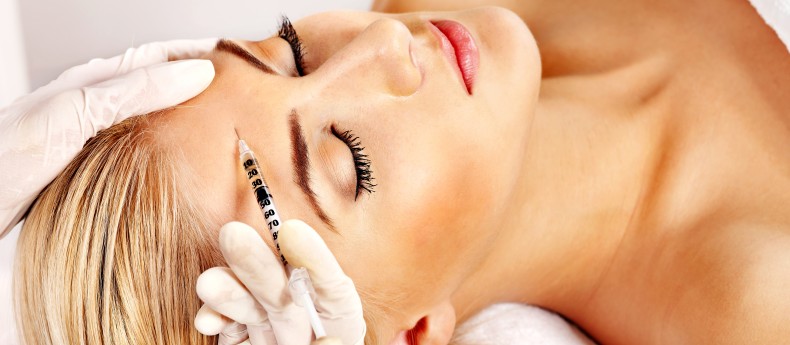
Ask An Expert – Botox Injections
Question: I am thinking about getting a Botox injection. What should I know about Botox and the procedure before deciding if it is right for me?
Answer: Dermatologist Michelle Ding gives her answer…
When used appropriately by certified physicians, it is generally accepted that Botox below 300 units per treatment is safe. For most cosmetic procedures, less than 100 units are required. Botox is not recommended for patients with allergies to Botox (human albumin, saline, lactose and sodium succinate); a skin infection at the site of the injection; muscle or nerve disease; breathing, swallowing, or bleeding issues; an upcoming surgery; weak forehead muscles; or drooping eyelids. Those who are pregnant or breast-feeding should also not use Botox.
Botox is derived from neurotoxins produced by the bacterium responsible for botulism. Due to its ability to inhibit neurotransmission between peripheral nerves and muscle tissue, Botox is an effective treatment for wrinkles and other medical concerns that are exacerbated by muscle contraction. Currently there are two brands registered for use in China: Hengli is a brand produced locally, while Botox Cosmetic is made in the United States by Allergan Inc.; the effect of both is similar.
Before the injection, a list of the prescription medications, natural supplements, vitamins and over the counter medications currently taken should be provided to the doctor. Any bleeding or allergy problems, lung or nerve disease, or conditions such as breast-feeding or pregnancy plans should be reported to the physician. Aspirin is recommended to be stopped two weeks before injection to prevent excessive bleeding.
Botox has been used clinically for more than 20 years and is considered to be a relatively safe product. Some people may experience difficulty breathing, dizziness or fainting, or a rash near the injected area. A U.S. Food and Drug Administration study following Botox treatments over a 13 and half year period identified non-serious adverse effects including lack of efficacy, injection-site bruising and temporary eyelid or eyebrow droop. Seven percent of the study’s adverse events were considered serious including paresthesia (a burning or tingling sensation), nausea and vomiting, double or blurred vision, decreased eyesight, swelling of eyelids and dry eyes, difficulty in swallowing, flu-like syndromes and allergic reactions.
Appropriate candidates for Botox injections are patients with specific cosmetic concerns that can be alleviated by local muscle weakening and who lack contraindications to therapy. Patients between the ages of 30-60 often achieve the most benefit from treatment. A greater proportion of wrinkles in older patients may be due to loss of skin elasticity, which is not alleviated by Botox.
One simple way to judge whether one is suitable for Botox injections or not is to relax the facial muscles and observe for any wrinkles on the skin. If the wrinkles are quite obvious, then Botox is most likely not the most suitable treatment.
To ensure the good results, repeat treatments approximately 3-4 months apart are typically needed. For some, the effect of Botox lasts up to one year. Generally speaking, the second or third treatment lasts longer than the first, so a patient should discuss with their doctor what frequency of treatment may be needed. With time, the skin will lose its elasticity, and Botox will lose its efficacy.
References:
Flynn, TC. “Advances in the Use of Botulinum Neurotoxins in Facial Esthetics.” Journal of Cosmetic Dermatology. 11: 42-50.
Pontes, HAR, et al. “Uncommon Foreign Body Reaction Caused by Botulinum Toxin.” Journal of Craniofacial Surgery. 23(4): 303-305.
Copyright United Family Healthcare 2018 All right reserved ICP 京ICP备13017554号-4



